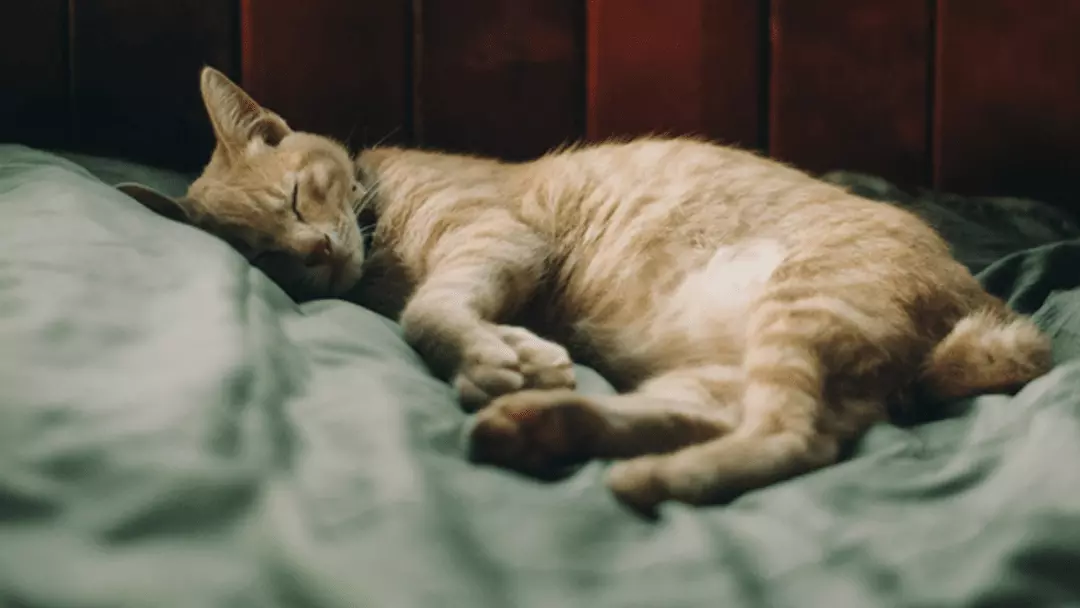10 Dos and Don’ts When Confining A Cat To A Room At Night
Confining a cat to a room at night is safe and acceptable if done properly. This can help to curb separation anxiety, speed up a cat’s recovery, or allow the owner to sleep better.
There are opposing views on whether this practice is cruel or not. If the cat is trained and slowly introduced to nighttime confinement, it will not be a stressful experience.

Sometimes letting a cat roam freely at night can cause more danger than confining a cat to a room at night. A kitten can break things, fall from elevated spaces, and even escape the property.
Be clear with your intentions for confining a cat to a room at night. After that, you should prepare the room and condition your cat slowly.
Situations when cats need to be confined in a room

While most pet owners will confine their cats at night for better sleep, other situations call for this solution. Here are some of them:
1. Recovering from an illness
Cats that underwent surgery must be confined away from other pets. This is to limit the feline’s movement and excitability.
Aside from that, confining a cat in a room will prevent infections if it has a transmissible disease. It’s a recommended practice, so the other pets at home won’t contract the illness.
2. Containing pest infestation
A cat suffering from a tick or flea infestation can be contained in a different room while its owners sort things out. This is to prevent other house pets from getting the critters.
However, this should be paired with cleaning and removal as ticks or fleas can crawl their way to other animals.
3. Allowing a rehomed cat to adjust
Confining a cat in a quiet room is a great option when adopting, fostering, or bringing a cat to a new home for the first time. This is to allow the kitty to adjust to its new environment.
Such confinement will prevent other house pets from overwhelming the new kitty. This is also for the safety of kittens.
4. Having disabled or senior cats
Senior cats get disoriented easily, so it will help if they are confined in a room instead of roaming around. Confining a cat that is disabled or senior will give the elderly feline a sense of safety as long as you keep the place comfy.
This is also helpful for disabled cats, especially those with mobility issues. It will prevent them from getting hurt when roaming around the house.
5. Leaving the cat alone at home overnight
Pet owners who are working night shifts have the option to confine their cats in a separate room. This is to limit the cat’s access to the house, preventing damages, accidents, and even anxiety.
Still, it’s important to train the cat for this. That way, the kitty won’t grow bored or anxious inside the room.
Dos and don’ts when confining a cat to a room

Confining a kitten to a room overnight is humane as long as you do it properly. The following are the dos and don’t you should keep in mind:
1. DO provide its basic needs.
When confining a cat, you should provide it with clean water, a cozy bed, and a small amount of food. You should also place your cat’s favorite toy inside for added comfort.
Water fountains are also a good option, but only if your cat doesn’t chew on wires. You can also use an automatic feeder, but make sure that you hide the cables well. Please read here: Is Your Cat Chewing On Nothing
Overall, the goal is to keep your cat comfy and safe inside the room. This way, your kitty won’t associate being confined with a negative experience.
2. DO use calming pheromones.
For nervous cats, calming pheromones will help a lot while they are confined. This product helps relieve anxiety and stress in cats by mimicking the facial pheromones of felines.
Aside from calming your cat’s nerves, it will also reduce the risk of marking, spraying, and hiding.
If you’re looking for an effective calming pheromone, you should consider the Feliway Optimum. This is tried and tested to work on most cats.
Just make sure that you plug the pheromone diffuser a day before the cat arrives. This is to allow the scent to spread throughout the room and stick to surfaces.
If you don’t have the budget for calming pheromones, you can use your own scent instead. This works if the cat has been your pet for a while already.
To do this, place one of your used shirts inside the room. It works well as a liner to the cat’s bedding.
3. DO observe proper ventilation.
You shouldn’t overlook ventilation when preparing your cat’s confinement room. Make sure that the temperature is not too hot and not too cold.
This wouldn’t be a problem if the room has interconnected vents around the house. During summer, keep the AC running inside the room and set the temp at a comfortable 75F to 78F.
It’s not wise to keep windows ajar as cats can easily use them as an escape path. Also, it’s not the safest move during the night.
4. DO provide interactive toys.
To prevent your cat from getting bored inside the confinement room at night, you should give it interactive toys.
Some of the good picks are FATCAT Crazy Catnip Ball Toy, Tempcore Cat Tunnel, and Topeakmart Multi-Level Cat Tree. Choose toys that your cat enjoys the most.
You can also purchase chew toys, balls, catnip mice, and more. Just make sure that you cycle these individuals per night, so your cat won’t get bored of it right away.
5. DO close windows and escape points.
Many cats are born to be escape artists. This is why you should always close potential escape points like windows. Please read here: How To Keep Cats Off Window Sills
Always keep the windows shut when confining a cat. During the first night, there’s a possibility that your cat will try to explore around and look for a way out.
A cat on the loose in the middle of the night isn’t something you’d like to deal with while half-asleep.
6. DO check on the cat early in the morning.
You should check your cat early in the morning to see if it’s fine. Make sure that you do this regularly at the same hour to get your cat used to the routine.
Overall, you should never confine your cat in a room longer than 24 hours. The safest period is 8 to 10 hours, which is just enough for you to get a full night’s sleep.
7. DO consider installing a pet camera.
For added peace of mind, you can put up a pet camera inside your cat’s confinement room. This way, you can check your kitty without having to get up from bed.
Also, almost every pet camera has two-way audio that allows you to talk to your cat. This is helpful, especially if you’re working at night.
Aside from that, there are pet cameras that allow you to toss treats remotely. It’s connected to a mobile app where you can control everything.
If you’re planning to get one, consider the Furbo 360 Dog Camera. This is a pet camera and treats tosser in one, not to mention that it has a one-of-a-kind 360-degree view angle.
Overall, the Furbo 2022 version of Furbo has a massive update. It’s one of the first pet cameras to have a complete 360-degree panning feature.
8. DON’T confine the cat for a full night at once.
Before you confine your cat to a room overnight, make sure that you train it first. Locking up the kitty all at once can trigger severe anxiety, which will associate the room with a traumatic experience.
Instead, set up your cat’s bed, litterbox, and toys inside the room during the day. Allow the cat to get used to the room for a few days.
Next, start feeding the cat inside the confinement room. You should also provide treats only inside this room.
By doing this, you’re associating the room with positive experiences. In just a week, you’ll notice your cat staying in the room for longer periods of time.
Once the kitty is comfortable, try closing the door. Open the door right away after a few seconds.
Keep doing this while slowly increasing the duration of the lock-up. Be patient and do this slowly to ensure that your cat is comfortable.
9. DON’T use confinement as a punishment.
You should never use confinement as a punishment for your misbehaving cat. If you do this, your kitty will start to dislike the room, which defeats its purpose.
Instead, you should close the door only when your cat is relaxed. Calming pheromones and treats will be a big help here.
10. DON’T lock up your cat in an unsafe room.
Lastly, you should never confine your cat in an unsafe room. Avoid rooms with objects that may get pushed over the edge and break.
If you’re going to use the bathroom as a confinement area for your cat at night, always lock your medicine cabinets. Also, remove any items that may hurt your pet.
Frequently Asked Questions About Confining a Cat to a Room at Night
Is it cruel to lock a cat in a room at night?
It’s not cruel to lock a cat in a room at night. In fact, it can be beneficial in some situations like when a cat has to recover from surgery or if the kitty just arrived in your home.
The cruel part is locking your cat inside a room for more than 24 hours. Also, depriving your cat of food and water while confined is an absolute no-no.
If the cat is conditioned well, the confinement room will be its safe haven. It’s also helpful when your cat gets anxious when you have guests around or if there’s a thunderstorm.
Should I let my cat roam the house at night?

It’s totally fine to let your cat roam around the house at night. Just make sure that your windows and doors are closed and any potential escape routes are blocked. It’s also a good idea to leave interactive toys around to keep your pet entertained as you sleep.
However, if your pet is still a kitten, you should wait until it’s fully litter-trained before letting it reign over the house.
If your cat is black or dark-colored, make sure that you put on a reflective collar on it at night. This will prevent the cat from getting stepped on.
Should I ignore my cat’s meowing at night?
Ignoring your cat’s crying at night will prevent enforcing the behavior. Still, make sure that your cat is fed, comfy, and safe to ensure that it’s not actually in need of help.
Over the days, your cat will realize that vocalizing at night will not do anything. This may stop in a few days or weeks.
Also, it will help to give your cat interactive toys to keep its mind off meowing loudly. Keeping your cat busy will save you from sleepless nights. Please read here: Do Cats Like The Dark
How do I stop my cat from waking me up in the middle of the night?
It’s quite common for cats to wake up their owners in the middle of the night. It could be due to hunger or just night time energy bursts.
You can stop this by training your cat to be confined in a room at night. You can also give interactive toys to occupy the kitty’s time.
Most importantly, consider training your cat to sleep somewhere other than your bed. Getting your pet used to this setup is like sabotaging your own sleep. Please read here: Why Does My Cat Sleep With Me And Not My Husband
Conclusion
Confining a cat in a room can help keep the kitty safe and calm. It will also help owners have a quality sleep, especially if their felines get the “crazies” at night. Please read here: How To Keep A Cat Out Of A Room
Still, you should condition your cat first. You should also prepare the room and make it as comfy as possible.
Lastly, you should never lock up your cat for longer than 24 hours. Around 8 to 10 hours is the most reasonable period for your cat’s welfare.
Do you have other points to add here? Let us know!
